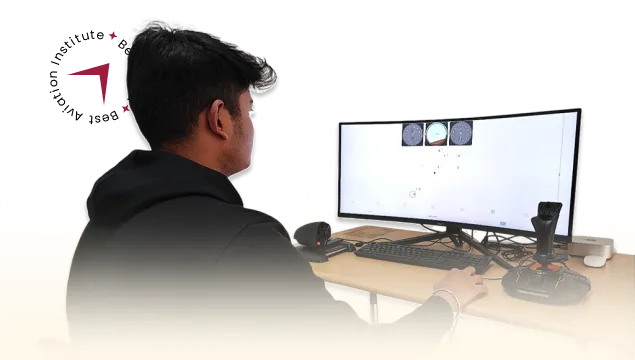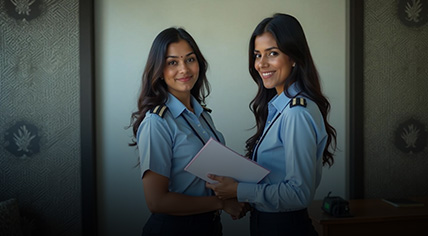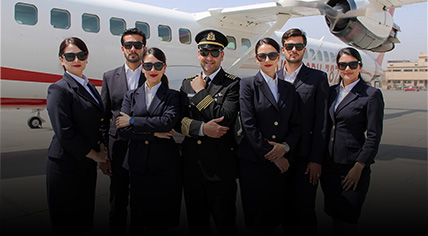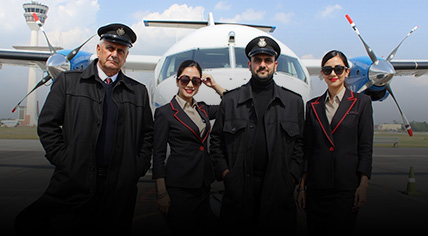

6 Months

18+ Years

10+2 Pass
Your first step to flying starts today. Click below to find out more.

The COMPASS test is a comprehensive evaluation that measures vital skills such as hand-eye coordination, multitasking, spatial awareness, memory, and decision-making. Air India uses this standardised test to identify candidates who possess the aptitude to handle the complexities of piloting and meet the rigorous demands of their cadet pilot program.
These skills will give the candidates an idea on what a pilot has to go through in the real world. Of course, this is not the only set of skills that is required, but it is an important one.
The advanced version of the COMPASS test requires some level of experience as a pilot. As well as questions that only experienced pilots can answer.
The COMPASS test is a gateway to a successful career in aviation, and Wing Path is dedicated to helping you achieve your goals. Our comprehensive training ensures you have the skills and confidence to excel in this crucial assessment
Performing well in the COMPASS test is important for securing a spot in cadet pilot programs with leading airlines. The test goes beyond technical knowledge, evaluating your capacity to stay composed under pressure, manage multiple tasks efficiently, and make accurate decisions in challenging scenarios. High scores in the COMPASS test significantly increase your chances of being shortlisted by top airlines.
Realistic Mock Tests
Skill-Enhancement Modules
Detailed Feedback and Analysis
Fill the form for Free counselling


